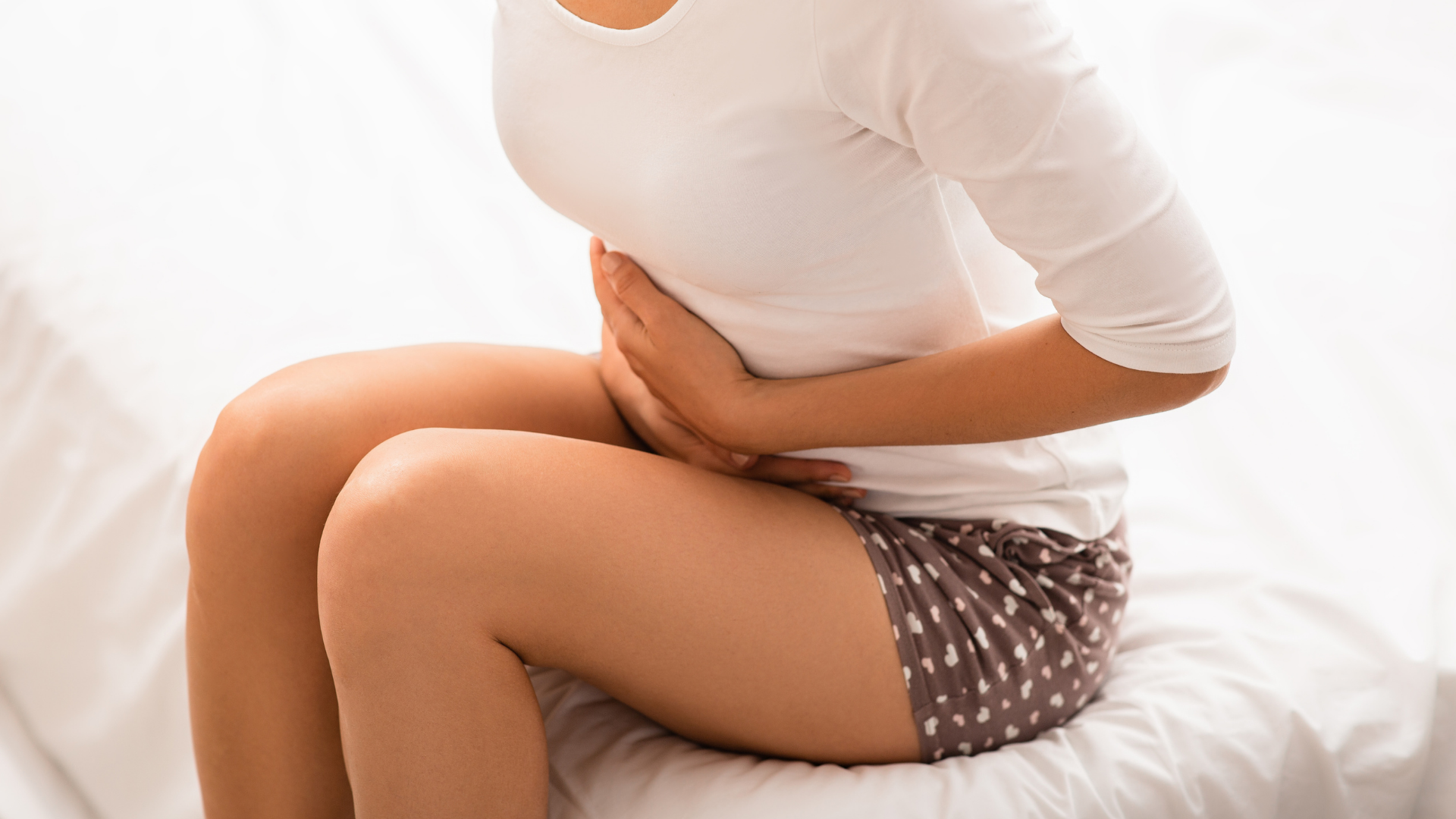How to Stop Bloating After Eating a Big Meal
As common as it is to experience bloating after eating—especially following a big meal like those around the holidays or for celebrations—that doesn’t make the experience any more bearable.
Of course, it’s important to know your dietary and lifestyle triggers that contribute to gas and bloating after eating. That could either be by getting functional tests with a registered dietitian, keeping a food diary, or plain old observation.
Yet still, there may be times in which bloating and stomach pain occur, even if you do your due diligence. When that happens, it’s helpful to know what you can do after the fact to ease your digestive discomfort.
Keep reading to learn how to get rid of bloating after eating, both during the winter holiday season and year-round.
How to Stop Bloating After Eating
Be sure to follow these six tips and tricks to stop stomach pain, gas, and bloating after eating.
1. If You Overeat, Go Easy on Yourself
Some meals call for a “treat yourself” mindset, particularly over holidays like Thanksgiving and other cultural and religious festivities, as well as birthdays and other special occasions. If you find yourself eating more than usual during such celebrations—or any meals at any time, really—it’s important to cut yourself some slack.
Don’t stress or shame yourself if you finish a big plate only to experience bloating after eating. After all, the less stress you have, the better your digestion will work. Really!
As a 2019 article from Harvard Health Publishing states, as a response to stress, “the digestive process may slow or be temporarily disrupted, causing abdominal pain and other symptoms of functional gastrointestinal disorders.” That’s largely because stress activates the fight-or-flight response in the nervous system, and the enteric nervous system helps regulate digestion.
While you may not realize how much stress and negative self-talk contribute to your digestive issues, the gut-brain axis is a very real thing to be mindful of—particularly if you can’t quite get to the root of your digestive discomfort.
So, yes: There’s no need to add insult to injury if you experience bloating after eating a large meal. If you go easy on yourself (and follow the remaining tips to stop bloating below), you’re more likely to feel relief faster.
2. Rethink Your Outfit Choice
I probably don’t have to tell you that wearing tight, restrictive clothing is a total party foul when it comes to big meals and bloating. I know I’m not the only one who never wants to experience that “must unbutton immediately” sensation ever again!
Yet it turns out that there’s more to wearing stretchy pants, oversized sweaters, and flowy dresses as a hack for how to stop bloating after eating—and these garments aren’t only helpful to hide a bloated belly. In fact, wearing tight clothing can restrict the natural movement of food and gas through the intestines.
In turn, what you wear can actually cause or worsen stomach pain and bloating after eating. So be sure to dress accordingly, whether you:
experience bloating often
know that the menu includes your personal dietary triggers
expect to feast on more food than usual
3. Drink Alcohol in Moderation
Now, for some good news: Moderate alcohol intake can help relax the body, leading to less stress and thus encouraging healthy digestive function. Sounds great, right?
But before you cheers to that (and cheers again, and then again late into the night), know that unlike the winning Mathletes answer in Mean Girls, the limit does exist.
Drinking one alcoholic beverage every hour or two is generally fine when it comes to digestion. However, imbibing much more than that—such as with binge drinking—will actually work against you. Over-consuming alcohol can not only make your digestive symptoms (bloating among them) worse, but also decrease the diversity of your gut microbiome.
All in all, slow and steady is key when it comes to alcohol and getting rid of bloating after eating.
4. Sip on the Best Teas for Digestion
Alcohol aside, there are drinks that can improve digestion and reduce gas and bloating after eating—with certain herbal teas chief among them.
I particularly recommend brewing carminative tea after eating a big meal, such as this one from Traditional Medicals. (For the record, carminative is a fancy word that means gas-reducing.) This digestion-friendly tea packs caraway, coriander, lemon balm, chamomile, and peppermint to soothe your gut, body, and senses.
However, you can also reach for several other teas that are good for bloating and overall digestion, such as those with:
ginger
fennel
anise
5. Walk It Out
As much as you may want to lay down on the couch after enjoying a large meal, you’ll actually be better off moving around a bit. I’m not talking about a full-on, post-meal HIIT workout by any means—I’m not a sadist, after all!—but encouraging you to hit the ground walking.
Walking is one of the best ways to reduce bloating after eating. In fact, it should give you relief from gas and bloating faster than reclining will. Movement—including that from low-intensity, leisurely walks—aids digestion by encouraging things to move efficiently through the GI tract.
Your best bet is to hit the pavement right after a big meal (before you’re tempted to nix the walk altogether) and keep at it for at least 30 minutes. By the time you get back, your digestive symptoms should be less intense than they would have been otherwise. You’ll have also gotten fresh air and burned some calories. Plus, if you enlist a friend or family member, you can clock in some quality bonding time as well.
6. Take Digestive Enzymes
Your body makes digestive enzymes on its own. However, sometimes you may need a bit more help breaking down those macros from your meal, and that’s where digestive enzyme supplements can help reduce bloating and discomfort.
Keep them on hand if gas and bloating after eating are common for you. You’ll want to look for full-spectrum digestive enzymes that will cover your bases to help break down:
protein
fat
carbs
fiber
dairy
If you’re looking for RD-approved recommendations, I suggest opting for Pure Encapsulations Digestive Enzymes Ultra or Designs for Health Digestzymes.
Take them before your feast if you know you’re going to eat a big meal and anticipate digestive symptoms. However, you can also take them post-meal to help stop the bloat.
What to Do If You Can’t Stop the Bloat
All six of these tips to reduce bloating should provide relief from stomach pain and bloating after eating.
However, if you follow these tips and still experience bloating, gas, and digestive discomfort, it may be time to seek further help from a functional health dietitian who can help discover the root causes of your digestive issues.
You can find out more about how my gut restoration protocol works here. Also, be sure to follow me on Instagram (@fearlessfig) for tips, education, humor, and more on bloating and all things gut health. Feel free to slide into my DMs too, and we can see how we can work together to stop your bloating for good.


